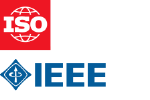Тезис
Within the context of the ISO/IEEE 11073 family of standards for device communication, this standard establishes a normative definition of the communication between independent living activity hubs and managers (e.g., cell phones, personal computers, personal health appliances, and set top boxes) in a manner that enables plug-and-play interoperability. It leverages appropriate portions of existing standards, including ISO/IEEE 11073 terminology and information models. It specifies the use of specific term codes, formats, and behaviors in telehealth environments restricting ambiguity in base frameworks in favor of interoperability. This standard defines a common core of communication functionality for independent living activity hubs. In this context, independent living activity hubs are defined as devices that communicate with simple situation monitors (binary sensors), normalize information received from the simple environmental monitors, and provide this normalized information to one or more managers. This information can be examined, for example, to determine when a person’s activities/behaviors have deviated significantly from what is normal for them such that relevant parties can be notified. Independent living activity hubs will normalize information from the following simple situation monitors (binary sensors) for the initial release of the proposed standard: fall sensor, motion sensor, door sensor, bed/chair occupancy sensor, light switch sensor, smoke sensor, (ambient) temperature threshold sensor, personal emergency response system (PERS), and enuresis sensor (bed-wetting).
Общая информация
-
Текущий статус: ОпубликованоДата публикации: 2024-09Этап: Опубликование международного стандарта [60.60]
-
Версия: 2
-
Технический комитет :ISO/TC 215ICS :35.240.80
- RSS обновления
Жизненный цикл
-
Ранее
ОтозваноISO/IEEE 11073-10471:2010
-
Сейчас
-
00
Предварительная стадия
-
10
Стадия, связанная с внесением предложения
-
20
Подготовительная стадия
-
30
Стадия, связанная с подготовкой проекта комитета
-
40
Стадия, связанная с рассмотрением проекта международного стандарта
-
50
Стадия, на которой осуществляется принятие стандарта
-
60
Стадия, на которой осуществляется публикация
-
90
Стадия пересмотра
-
95
Стадия, на которой осуществляется отмена стандарта
-
00


